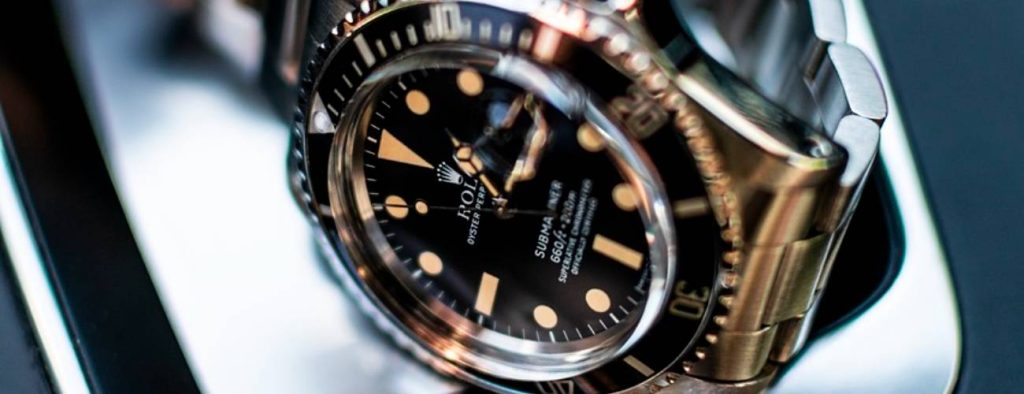blog
Why Investing in a Watch is Smarter Than You Think
When we think of investments, we often picture stocks, real estate, or even rare collectibles. However, there is another form of investment that has been gaining popularity and offers both style and financial potential: watches. While some may view watches as simple accessories, they can serve as valuable assets that not only hold sentimental value but also appreciate over time. In this article, we’ll explore why investing in a watch is smarter than you might think, covering the financial, emotional, and practical benefits of adding a timepiece to your investment portfolio.
1. Watches as a Tangible Asset
Watches, especially luxury timepieces, are tangible assets, meaning that they are physical items you can hold and wear. Unlike stocks or bonds, which exist in the digital world and can be affected by market volatility, a watch is something you can physically enjoy while its value potentially appreciates.
This characteristic sets watches apart from other investment opportunities because you can both use and potentially profit from them. Moreover, luxury watches are often crafted from high-quality materials such as precious metals, diamonds, and fine leather, which contribute to their intrinsic value.
Unlike some investments that can be difficult to track or manage, a watch can be carefully stored, worn, and maintained, all while its value increases. Many high-end watches have been known to increase in value over time, sometimes surpassing their original purchase price by a significant margin.

2. Watches Can Appreciate in Value
One of the most compelling reasons to invest in a watch is the potential for appreciation. While the value of some watches may fluctuate based on factors like brand reputation, condition, and rarity, many luxury timepieces have been shown to increase in value over time. This makes watches an attractive alternative investment for those looking to diversify their portfolios.
Certain brands like Rolex, Patek Philippe, and Audemars Piguet have a long history of producing timepieces that have not only held their value but also grown in worth. For instance, Rolex models such as the Submariner and Daytona have seen considerable appreciation, especially if kept in good condition and maintained with original parts. Limited edition models, vintage pieces, and rare watches are often the most likely to appreciate in value, and savvy investors know which models to target.
3. Watches as Heirlooms and Sentimental Value
Watches are not just about investment potential; they also carry deep sentimental value. A luxury timepiece can be passed down from generation to generation, making it not only a valuable asset but also a cherished family heirloom. This aspect of investing in watches adds an emotional layer that other forms of investment don’t provide.
For many people, a watch is more than just a timekeeping device—it represents milestones, achievements, and memories. Whether it’s a gift for a graduation, a wedding anniversary, or a special celebration, watches are often tied to personal stories. This makes them valuable not only in financial terms but also in terms of the memories they encapsulate.
The emotional value of a watch can’t be understated. As time passes, your investment becomes a tangible connection to the past and a legacy you can leave for future generations. There is an intrinsic value in being able to pass down a beautiful watch that tells the story of your family’s history, adding a unique layer to its investment potential.
4. The Appeal of Luxury Watches
Investing in luxury watches provides a sense of exclusivity and prestige. High-end timepieces are often considered symbols of success, craftsmanship, and sophistication. The craftsmanship that goes into creating luxury watches is exceptional, with many pieces taking years to perfect and requiring a significant amount of expertise.
Owning a luxury watch is a way to express personal style and status, and it often leads to admiration from others. While wearing a luxury watch may not guarantee instant recognition, the subtle yet undeniable aura of quality and sophistication is something that appeals to those who appreciate fine things. Moreover, these timepieces are often crafted by renowned brands that have built reputations over decades or even centuries, further adding to their allure.
The value of owning a luxury watch extends beyond financial investment—it’s also about the lifestyle it represents. Luxury watches are timeless accessories that never go out of style, making them an evergreen investment for those who want to elevate their personal style while securing a valuable asset.
5. Watches as a Diversification Tool
In any investment strategy, diversification is key to mitigating risk and maximizing returns. Watches offer a unique opportunity to diversify your portfolio, especially when you consider the increasing appeal of luxury timepieces among investors. By adding watches to your collection, you’re expanding your investment options in a tangible way.
In times of economic uncertainty or when traditional markets face volatility, watches—especially luxury models—often remain stable. Unlike stocks, which can be highly susceptible to market fluctuations, watches are a physical asset that is not directly tied to the ups and downs of the stock market. This makes them a great way to hedge against inflation or financial instability.
Watches can also complement other investments like real estate, stocks, and even art, helping you build a well-rounded portfolio. Furthermore, with the increasing demand for high-quality watches, it’s easier than ever to find buyers for rare or vintage models, should you decide to sell in the future.
6. Limited Editions and Rarity
The rarity of a watch plays a crucial role in its potential to appreciate over time. Limited-edition timepieces, or those produced in small quantities, often become highly sought after by collectors and investors. As demand increases for these rare models, their value typically rises as well. For instance, many luxury brands produce watches in limited runs or release special editions for specific events, which can significantly increase their collectability.
Watches from iconic brands like Rolex, Patek Philippe, and Audemars Piguet are often produced in limited editions or in small numbers, which makes them more valuable over time. The allure of rarity drives demand, and many investors are willing to pay a premium for a watch that will be difficult to find in the future.
As these watches age and become rarer, their prices tend to increase, often significantly. For example, vintage Rolex watches, especially those with unique features or limited editions, can fetch a price far above their original retail value. Investing in such watches can offer not only a financial return but also a sense of pride in owning a piece of watchmaking history.

7. The Global Watch Market
The global watch market continues to grow, with increasing demand for luxury timepieces coming from emerging markets. Countries like China, India, and the Middle East have seen an explosion in the number of high-net-worth individuals seeking to invest in luxury goods, including watches. As the global market expands, the value of sought-after watches is likely to increase, especially for iconic brands with strong legacies.
The global nature of the watch market means that high-quality timepieces can be sold and purchased worldwide. Whether you’re looking to buy a rare watch or sell one, there is a vast international market where these transactions can occur. This global network ensures that there is always potential for liquidity, allowing investors to enter and exit the market with ease.
8. Watches as a Store of Value
In times of economic instability or inflation, watches have proven to be a reliable store of value. Just like gold or precious metals, watches can retain their value even when traditional currencies lose purchasing power. Many investors are increasingly looking at luxury watches as a form of wealth preservation.
Luxury timepieces are crafted from valuable materials such as gold, platinum, and diamonds, which hold their worth even as currencies fluctuate. The inherent value of these materials, combined with the watch’s craftsmanship and brand heritage, ensures that watches are not just for timekeeping—they are also valuable assets.
Conclusion
Investing in a watch is smarter than you think for several reasons. Watches are tangible, valuable assets that can appreciate over time, serve as sentimental heirlooms, and offer a sense of exclusivity and prestige. With the potential for high returns, limited editions, and the ability to diversify your investment portfolio, watches are an investment that can provide both personal enjoyment and financial rewards.
Whether you are looking to invest in a high-end timepiece for its potential to appreciate in value, or simply want to own a piece of horological history, watches offer a unique and valuable opportunity. With the global demand for luxury watches continuing to rise, now is the perfect time to consider adding a watch to your investment collection. The timeless appeal, combined with the potential for long-term financial growth, makes investing in a watch a smart and rewarding decision.

